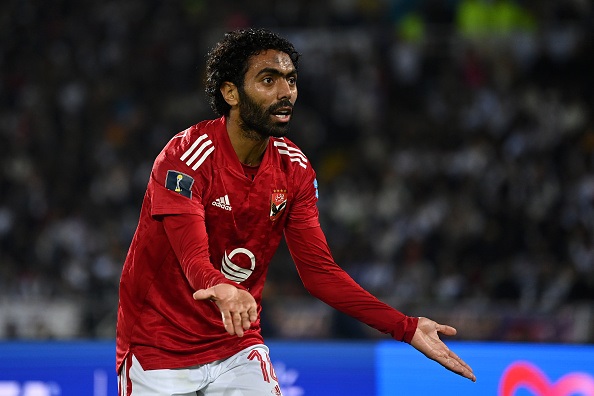
In a surprising turn of events, Al Ahly football club’s talented winger, Hussein El-Shahat, finds himself entangled in a legal battle that could result in up to two years of imprisonment. The lawsuit, filed by Moroccan musician Mohamed Chibi, alleges that El-Shahat used Chibi’s copyrighted material without permission in a promotional video.
The incident came to light when Chibi noticed that a promotional video featuring El-Shahat, which was used for commercial purposes, contained his copyrighted music without proper authorization. Feeling aggrieved and seeking to protect his intellectual property rights, Chibi took legal action against the football star and the club.
Intellectual property laws are put in place to safeguard the creative works of artists, musicians, and content creators, ensuring that they have control over the use and distribution of their creations. Copyright infringement, if proven, can have serious consequences, both legally and financially, for the parties involved.
El-Shahat, a pivotal player for Al Ahly and a celebrated figure in Egyptian football, now faces the potential risk of criminal charges and imprisonment. The lawsuit serves as a reminder to all individuals and entities in the sports and entertainment industry about the importance of respecting intellectual property rights and obtaining proper permissions before using copyrighted material.
The case has garnered significant attention in the football community and beyond, highlighting the complexities surrounding copyright issues in the digital age. It raises questions about the responsibilities of clubs and their players to ensure compliance with copyright laws and the potential repercussions of failing to do so.
As the legal battle unfolds, it is essential for all parties involved to adhere to the principles of due process and fair trial. Both Chibi and El-Shahat deserve the opportunity to present their arguments and evidence in a court of law, and a transparent and impartial legal process should be upheld.
In the sports world, where players are often in the public eye, it is vital for athletes and clubs to be vigilant about copyright regulations and to seek appropriate legal advice when using third-party content for promotional purposes. This incident serves as a cautionary tale for others in the sports and entertainment industry to ensure that they have proper licensing and permissions for all materials used in their promotional activities.
Moreover, this case highlights the importance of copyright education and awareness within the sports community. Clubs and players should be educated about intellectual property rights and the potential consequences of copyright infringement to avoid similar legal disputes in the future.
As the legal proceedings progress, the football world watches with interest, awaiting the verdict that could have far-reaching implications for how copyrighted material is used in promotional activities. Regardless of the outcome, this incident serves as a reminder to all individuals and organizations in the sports industry about the significance of respecting intellectual property rights and ensuring compliance with copyright laws.




